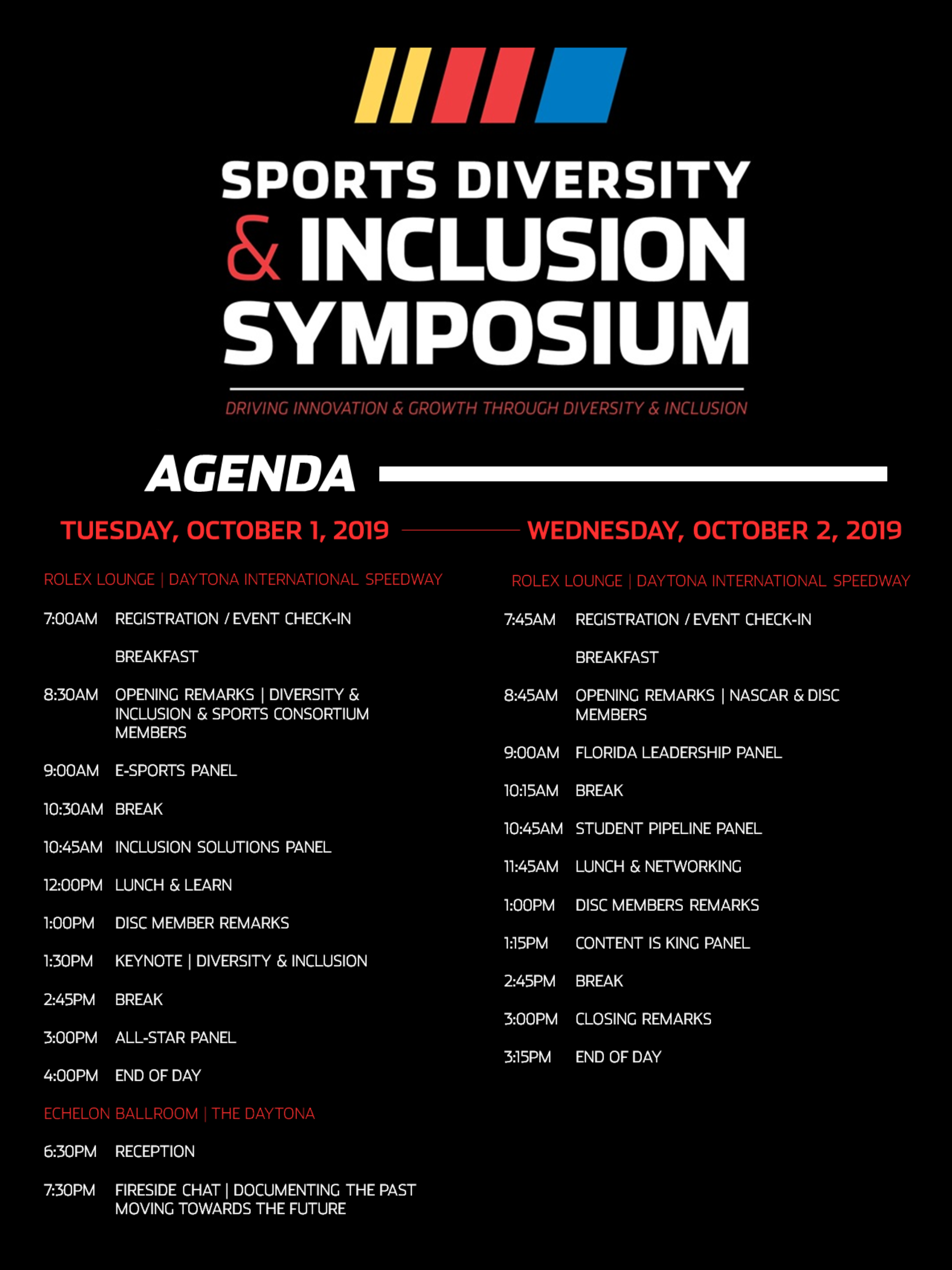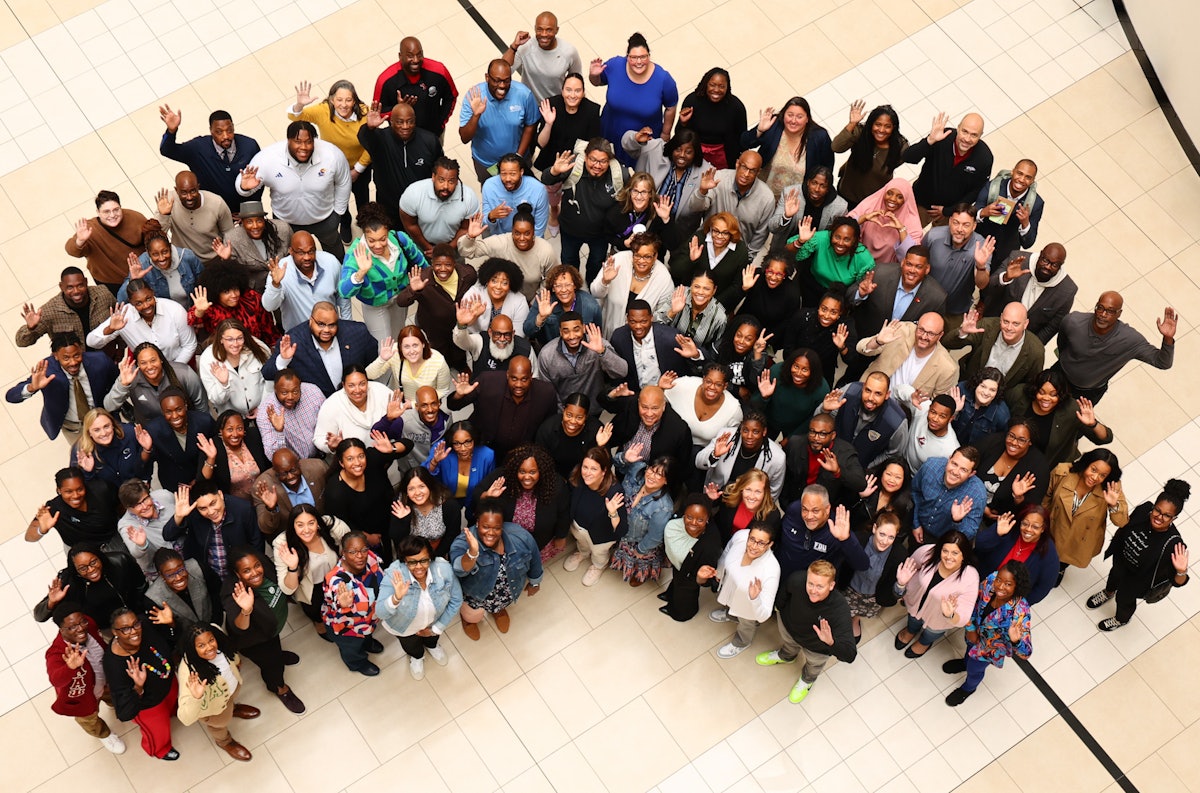The NCAA Inclusion Forum has become a pivotal event for promoting diversity, equity, and inclusion within college athletics. As one of the most significant initiatives in modern sports governance, it addresses critical issues such as racial equality, gender fairness, and accessibility in sports. This forum serves as a platform where leaders, athletes, and stakeholders come together to discuss actionable strategies to create a more inclusive environment.
The importance of fostering inclusivity in sports cannot be overstated. In today's rapidly evolving social landscape, the NCAA recognizes the need to adapt and lead by example. The inclusion forum plays a crucial role in shaping policies and practices that reflect the values of fairness, respect, and equality. By addressing systemic barriers and promoting diversity, the forum ensures that college sports remain accessible and equitable for all participants.
Through meaningful dialogue and collaboration, the NCAA Inclusion Forum aims to transform college athletics into a space where everyone feels valued and respected. This article explores the purpose, history, impact, and future directions of the forum, providing insights into its significance for the sports community and beyond. Whether you're an athlete, coach, administrator, or sports enthusiast, understanding this initiative is essential for contributing to a more inclusive sports culture.
Read also:Lela Sohna Nude
Table of Contents
- Introduction to NCAA Inclusion Forum
- History and Evolution of the Forum
- Key Issues Addressed
- Impact on College Athletics
- Leadership and Stakeholders
- Strategies for Inclusion
- Success Stories and Case Studies
- Challenges and Obstacles
- Future Directions and Innovations
- Conclusion and Call to Action
Introduction to NCAA Inclusion Forum
The NCAA Inclusion Forum is a groundbreaking initiative aimed at promoting diversity, equity, and inclusion in college sports. Established to address long-standing issues related to racial and gender disparities, this forum serves as a catalyst for change within the sports community. By bringing together key stakeholders, including athletes, coaches, administrators, and policymakers, the forum facilitates meaningful discussions and actionable solutions.
One of the primary goals of the forum is to ensure that college sports programs reflect the diverse demographics of society. This involves creating policies and practices that eliminate barriers and promote equal opportunities for all participants. The forum also emphasizes the importance of fostering a respectful and inclusive environment where everyone feels valued and supported.
History and Evolution of the Forum
The NCAA Inclusion Forum has undergone significant evolution since its inception. Initially established to address racial disparities in college sports, the forum has expanded its scope to include a wide range of issues, such as gender equality, LGBTQ+ rights, and accessibility for individuals with disabilities. Over the years, the forum has become a leading platform for advancing inclusivity in athletics.
Key milestones in the forum's history include:
- 2010: Launch of the inaugural forum focused on racial equity.
- 2015: Expansion to include gender equality and LGBTQ+ rights.
- 2020: Incorporation of accessibility and disability inclusion initiatives.
Key Issues Addressed
The NCAA Inclusion Forum tackles a variety of critical issues that impact college sports. These include:
- Racial equity: Ensuring fair representation and opportunities for athletes of all racial backgrounds.
- Gender equality: Promoting equal pay, resources, and recognition for male and female athletes.
- LGBTQ+ rights: Creating a welcoming environment for LGBTQ+ athletes and staff.
- Accessibility: Supporting athletes with disabilities and ensuring equal access to sports facilities and programs.
Impact on College Athletics
The impact of the NCAA Inclusion Forum on college athletics has been profound. By implementing policies and practices that promote inclusivity, the forum has helped create a more equitable and respectful sports environment. For example, many institutions have adopted diversity training programs for coaches and staff, ensuring that they are equipped to address issues related to bias and discrimination.
Read also:Who Is Kat Timpf S Sister
Furthermore, the forum has encouraged colleges and universities to invest in facilities and resources that support athletes from diverse backgrounds. This includes providing scholarships, mentorship programs, and career development opportunities for underrepresented groups.
Leadership and Stakeholders
The success of the NCAA Inclusion Forum is largely attributed to the strong leadership and collaboration of its stakeholders. Key figures in this initiative include:
- Dr. Bernice Sandler: A pioneer in gender equality and women's sports advocacy.
- Dr. Shaun Harper: A leading expert on racial equity in higher education and sports.
- Athletic Directors: Champions of diversity and inclusion within their respective institutions.
These leaders work closely with athletes, coaches, and administrators to develop and implement strategies that promote inclusivity in college sports.
Strategies for Inclusion
The NCAA Inclusion Forum employs a variety of strategies to promote diversity and equity in college athletics. These strategies include:
- Conducting regular diversity audits to assess institutional practices.
- Implementing mandatory diversity training for all staff and coaches.
- Developing mentorship programs for underrepresented athletes and staff.
- Creating partnerships with organizations that support diversity and inclusion.
By adopting these strategies, the forum ensures that colleges and universities are actively working towards creating a more inclusive sports environment.
Success Stories and Case Studies
The NCAA Inclusion Forum has produced numerous success stories that highlight the positive impact of its initiatives. For example, the University of Oregon's "Ducks Advancing Inclusion" program has successfully increased diversity among its athletic staff and student-athletes. Similarly, the University of Maryland's "Terps Together" initiative has fostered a more inclusive environment for LGBTQ+ athletes.
These case studies demonstrate the effectiveness of the forum's strategies and serve as models for other institutions to follow.
Challenges and Obstacles
Despite its many successes, the NCAA Inclusion Forum faces several challenges and obstacles in its mission to promote inclusivity. These include:
- Resistance from traditionalists who oppose changes to long-standing practices.
- Limited resources and funding for diversity initiatives.
- Cultural and systemic barriers that hinder progress.
Addressing these challenges requires continued commitment and collaboration from all stakeholders involved in the forum.
Future Directions and Innovations
The future of the NCAA Inclusion Forum looks promising, with several innovative initiatives on the horizon. These include:
- Expanding the forum's reach to international sports organizations.
- Incorporating technology to enhance accessibility and inclusivity in sports.
- Developing new metrics to measure the success of diversity initiatives.
By embracing these innovations, the forum can continue to lead the way in promoting inclusivity in college sports.
Conclusion and Call to Action
In conclusion, the NCAA Inclusion Forum plays a vital role in advancing diversity, equity, and inclusion in college athletics. Through its innovative strategies and collaborative efforts, the forum has made significant progress in creating a more inclusive sports environment. However, continued commitment and action are necessary to address the challenges that remain.
We invite you to join the conversation by leaving a comment, sharing this article, or exploring other resources related to diversity and inclusion in sports. Together, we can contribute to a brighter future for college athletics and beyond.
For further reading, consider exploring the following sources:
- NCAA Official Website: https://www.ncaa.org
- Journal of Sport Management
- Sport and Social Issues Journal


